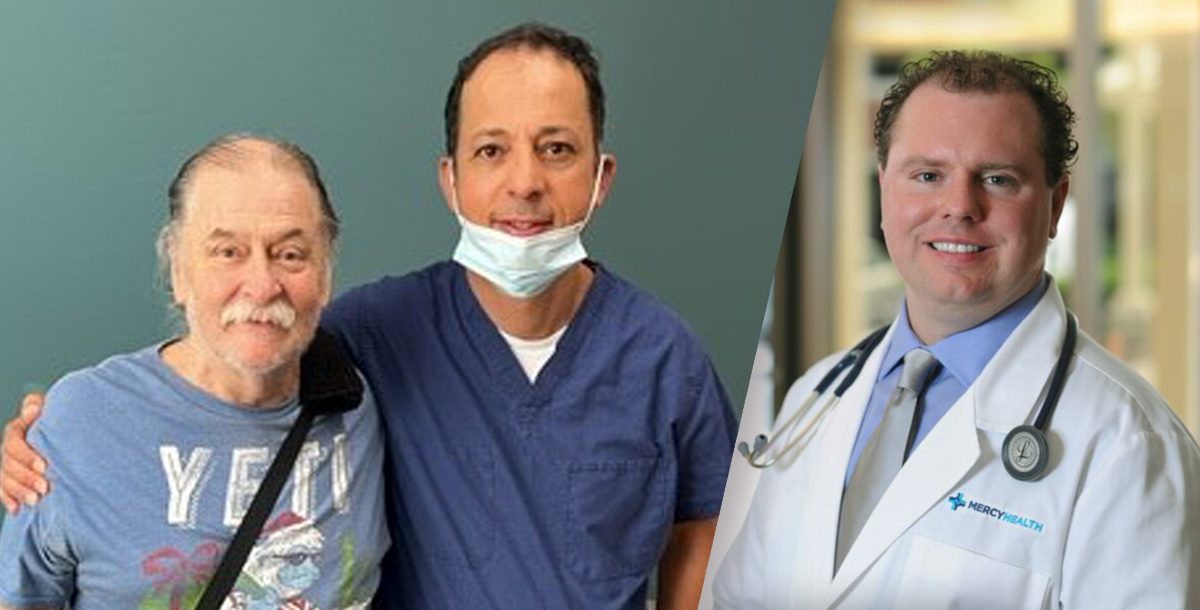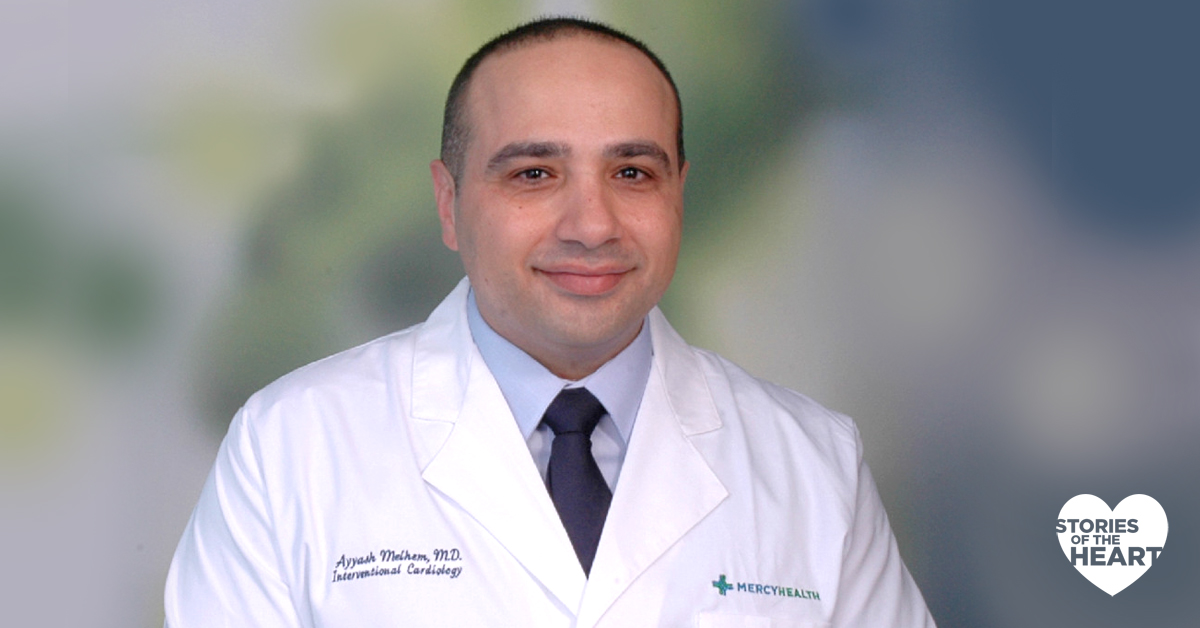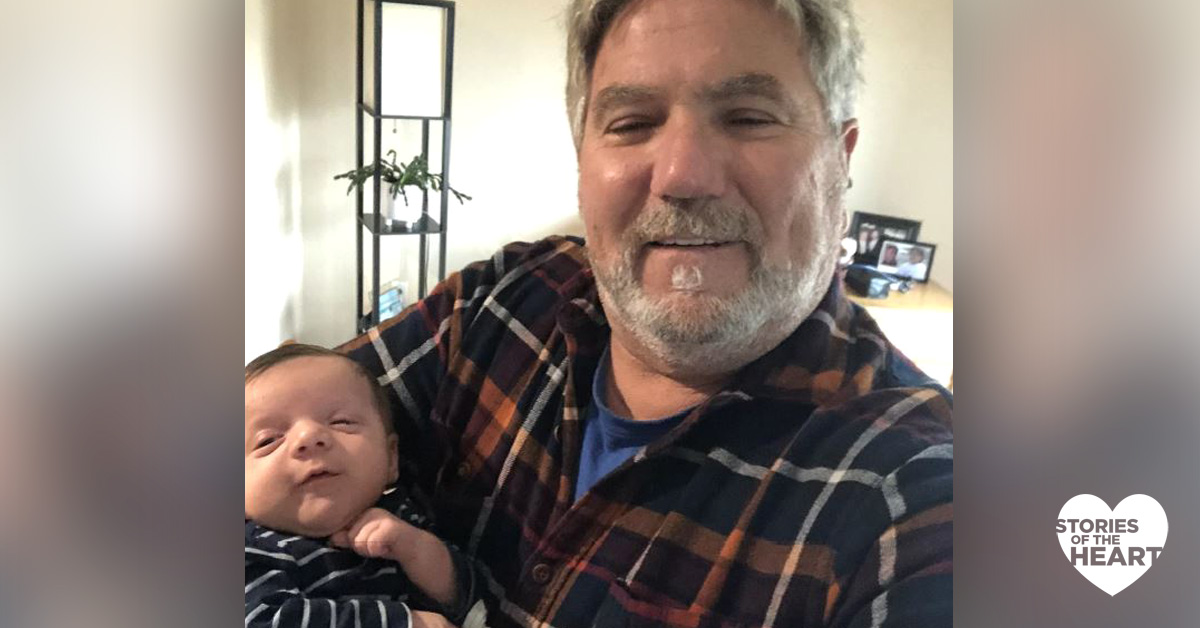“I’m not a doctor person,” Curt Leggett admits. “If I got sick, I took care of it all by myself. I’ve always been really healthy – at least I thought I was.”
However, changed for the 63-year-old on the evening of Oct. 6, 2021.
“I was having pains and shortness of breath,” Curt recalls. “I called an ambulance and I had them take me to Mercy Health – Anderson Hospital. At the hospital, they told me I was having a heart attack.”
In fact, Curt was experiencing a severe heart attack and was in cardiogenic shock, a life-threatening condition in which the heart suddenly loses its ability to pump the blood and oxygen the body needs to support vital organs, including the brain.
In the cath lab, Jason Paquin, MD, one of our interventional cardiologists (pictured above, right), determined that Curt’s ejection fraction was just 10 percent. Ejection fraction is a measure of the percentage of blood leaving a person’s heart each time it contracts, and a normal ejection fraction is 60 to 65 percent. Dr. Paquin placed an assist device through a blood vessel in Curt’s groin and fed it inside his aorta to help his heart pump blood to the rest of the body.
By 7 a.m. the next morning, Curt was in the operating room. Mohi Mitiek, MD, one of our cardiothoracic surgeons (pictured above, left with Curt), performed open heart surgery in the hope of saving his life.
“Curt had a 100 percent blockage in the middle artery of his heart, a 95 percent blockage of the artery that runs on the left side and behind the heart and a 100 percent blockage of the artery on the right side of the heart,” Dr. Mitiek explains. “Because Curt’s heart was very weak, there was a strong chance he could die in surgery. Coming off bypass surgery, we had to use a surgical Impella 5.5 L to support his heart.”
An Impella device is a heart pump that supports the pumping function of a patient’s heart when the heart needs extra help performing this task.
While the surgery was a success, Curt remained very sick and fell into a coma for five days. The Impella device continued to provide the pumping function, allowing Curt’s heart to rest and heal during that time.
“On Oct. 19, he opened his eyes spontaneously. He just woke up,” Dr. Mitiek says. “On Oct. 21, we took the Impella device out.”
Curt’s heart could now pump on its own and Dr. Mitiek discharged Curt to a skilled nursing facility to continue his recovery. One week later, Curt came in for a follow-up visit.
“I saw him back in clinic and his heart function had improved to 35 percent,” Dr. Mitiek recalls. “It is very unusual for someone to be this close to death and survive. Curt is lucky his heart muscle didn’t die altogether.”
And while Curt is still recovering today, he has made good progress thus far.
“I’m moving right along,” he shares. “I’m not running yet but I can go up and down steps. I’m doing a little bit at a time. I’m getting my weight back and I got the color in my hair back.”
Most of all, Curt is grateful to Dr. Mitiek and Dr. Paquin for keeping him alive.
“They did a good job, took care of me and kept me here. I didn’t think I was going to be here, and I was lucky I made it. If it wasn’t for them, I wouldn’t be here.”
Learn more about the heart and vascular care services we provide at Mercy Health.






